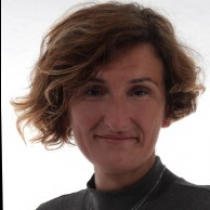University Hospital in Krakow
Area of expertise and the Healthcare Provider’s contribution to care for patients within the MetabERN Network
Department of Metabolic Diseases is a leading centre that has been covering the care of patients with metabolic disorders mainly from southern and south-eastern Poland. His care of these include patients with:
- Classical civilization diseases
- Genetically determined metabolic disorders such as monogenic form of diabetes, familial hypercholesterolemia, and rare inherited metabolic diseases
It is one of the few centers specialized in the care of adult patients with congenital metabolic diseases. For more than 10 years in the Department of Metabolic Diseases, patients with lysosomal storage diseases are being treated within the therapeutic programs, funded by the National Ministry of Health.
Department of Metabolic Diseases works closely with University Children’s Hospital and Specialist Children’s Hospital.
This collaboration covers:
- Training for professionals
- Conduct of care for patients with rare diseases
- Developed and improved system for transitioning adolescent patients with congenital metabolic disorders from paediatric care to adult care
In addition to medical activity, as Chair of the University Centre, it conducts:
- Training of medical staff (students of the Faculty of Medicine at the Jagiellonian University)
- Training of physicians at postgraduate level and specialization courses in the field of metabolic diseases
The Department maintains constant cooperation with University centres from other cities in Poland and abroad (cooperation associated with publication of joint research) and regional research centres.
specific treatments and interventions provided by the HCP
Patients with rare metabolic diseases are covered by medical care in the Department of Metabolic Diseases in two ways:
- As part of care on the ward:
- Receive ERT (therapeutic programs financed by the National Ministry of Health)
- Visits held once a week or every two weeks, depending on the type of drug
- Comprehensive care and monitoring including:
- Specialist consultations at least once a year
- Imaging and biochemical tests
- Within the outpatient clinic:
- Visit frequency depends on the patient’s condition
- Regular checkups, laboratory and imaging are performed
- Consultations by specialists based on needs, complaints, and clinical symptoms
Both groups of patients are subject to comprehensive specialist care. Within the University Hospital, necessary specialized clinics needed to monitor patients are located. If necessary, patients are hospitalized at the Department of Metabolic Diseases or other clinics within the University Hospital (such as the Department of Gynecology).
The University Hospital’s modern equipment allows for research needed to monitor therapy effectiveness or disease severity. Routine biochemical, hormonal and immunological tests are performed in the Department of Diagnostic University Hospital.
Thanks to cooperation with centers in the country, they can perform qualitative and quantitative determinations (for example chitotriosidase level, or ceramides excretion in the urine). The Department of Metabolic Diseases also cooperates with foreign centers where studies of genetics, enzyme assays and molecular biology are carried out.

University Hospital in Krakow
Macieja Jakubowskiego 2, 30-688 Kraków, Poland


